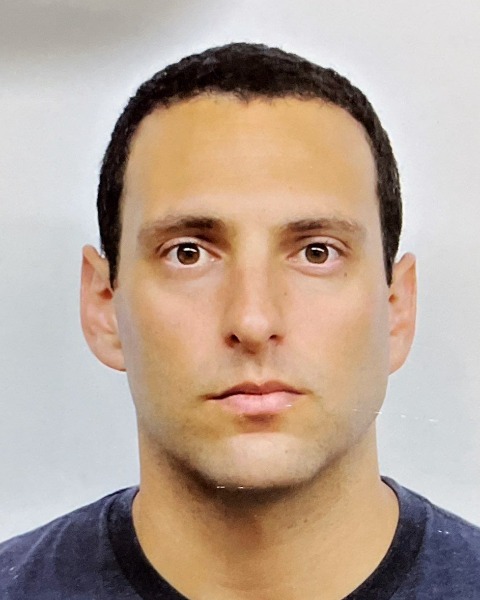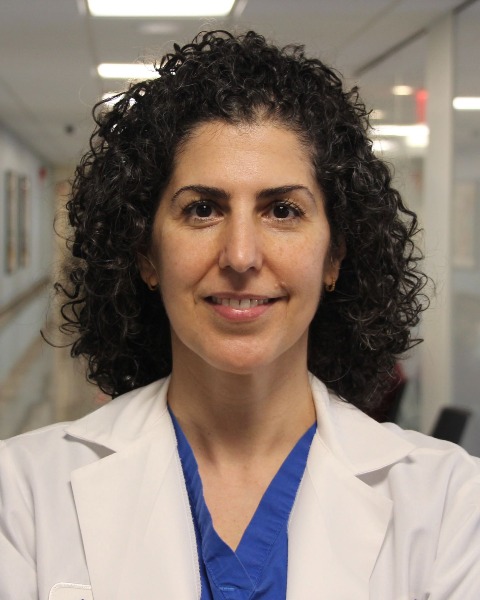Quality Improvement/Clinical Outcomes
E389: Prevalence of Anxiety and Depression in Surgical Oncology Patients: Results of a Prospective Cohort Study

Judy Li, MD (she/her/hers)
Surgical Oncology Research Fellow
Mount Sinai School of Medicine
Jersey City, New Jersey, United States
Judy Li, MD (she/her/hers)
Surgical Oncology Research Fellow
Mount Sinai School of Medicine
Jersey City, New Jersey, United States
Judy Li, MD (she/her/hers)
Surgical Oncology Research Fellow
Mount Sinai School of Medicine
Jersey City, New Jersey, United States
Nazanin Khajoueinejad, MD (she/her/hers)
Resident Physician
Mount Sinai School of Medicine
New York, New York, United States
Elad Sarfaty, MD
Surgical Oncology Research Fellow
Mount Sinai School of Medicine
New York, New York, United States.jpg)
Allen T. Yu, MD, PhD
Resident Physician
Mount Sinai School of Medicine
New York, New York, United States- AB
Alison Buseck, BA
Research Coordinator
Mount Sinai School of Medicine, United States - ST
Samantha Troob, BS
Research Coordinator
Mount Sinai School of Medicine, United States - CC
Camilo Correa, MD
Assistant Professor
Icahn School of Medicine at Mount Sinai, United States - BG
Benjamin Golas, MD
Associate Professor
Mount Sinai School of Medicine, United States - SH
Spiros Hiotis, MD, PhD
Professor
Icahn School of Medicine at Mount Sinai
New York, New York, United States - DL
Daniel Labow, MD
Professor
Nuvance Health
New York, New York, United States 
Deepa Magge, MD, FACS
Assistant Professor
Vanderbilt University Medical Center
Nashville, Tennessee, United States
Umut Sarpel, MD, MSc (she/her/hers)
Chief, Division of Surgical Oncology
Beth Israel Deaconess Medical Center, United States
Noah A. Cohen, MD (he/him/his)
Associate Professor
Icahn School of Medicine at Mount Sinai
NEW YORK, New York, United States
ePoster Abstract Author(s)
Submitter(s)
Author(s)
Prospective data assessing prevalence of anxiety and depression in a diverse surgical oncology population are currently lacking. We aimed to determine their prevalence using validated screening tools and assess associations of anxiety and depression with clinical outcomes in patients presenting to our surgical oncology clinic.
Methods:
A prospective, surgeon-blinded study was conducted to assess associations of anxiety and depression with postoperative outcomes in patients with a histologically-proven malignancy undergoing surgery. The General Anxiety Disorder (GAD) and Patient Health Questionnaire (PHQ9) surveys are validated instruments assessing severity of anxiety and depression, respectively. These surveys were administered preoperatively. Frailty level was assessed using the validated Risk Analysis Index (RAI-C) survey. Postoperative outcomes included rates of ICU admission, 30- and 90-day readmissions, postoperative complications classified by Clavien-Dindo score, and disposition to home versus rehabilitation facilities. Outcomes were compared between different groups as defined by the severity of anxiety and depression.
Results:
191 patients met inclusion criteria. The cohort was stratified into three groups by severity of anxiety and depression. Overall, 59 (31%) patients reported at least moderate anxiety as defined by a GAD score >5, with 30 (15.7%) patients reporting severe anxiety (GAD score > 10). Similarly, 62 (32%) patients reported at least mild depression as defined by a PHQ9 score >5, with 21 (11%) patients experiencing moderate to severe depression (PHQ9 > 10). No difference was detected in length of stay, ICU admission, 30- and 90-day readmission, and postoperative complications. Preoperative frailty, defined by RAI-C score >21, was also not associated with anxiety or depression. Marital status of single or widowed was found to be significantly associated with mild depression (p=0.027) and moderate to severe depression (p=0.028), respectively through chi-squared analyses.
Conclusions: Anxiety and depression are prevalent in surgical oncology patients, affecting approximately one-third of our population, but were not found to be associated with worsened short-term outcomes. The GAD and PHQ9 surveys are validated instruments that can be administered easily to identify patients with psychological distress. Comprehensive evaluation of psychological well-being, in conjunction with a thorough social evaluation, can identify those who may benefit from referral to supportive resources during their treatment course.
Learning Objectives:
- Understand the different tools available to screen for anxiety and depression.
- Recognize the prevalence of anxiety and depression in the surgical oncology population.
- Describe the importance of a thorough social evaluation in the surgical oncology clinic.
